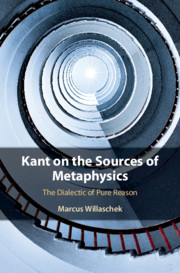Most interpreters hold that Kant rejects actually infinite tota synthetica as conceptually impossible. This view is attributed to Kant to relieve him of the charge that the first antinomy’s thesis argument presupposes transcendental idealism. I argue that important textual evidence speaks against this view, and Kant in fact affirms the conceptual possibility of actually infinite tota synthetica. While this means the first antinomy may not be decisive as an indirect argument for idealism, it gives us a better account of how our ideas of the unconditioned generate the antinomies, and it allows us to see important and often overlooked elements in Kant’s account of the infinite.

